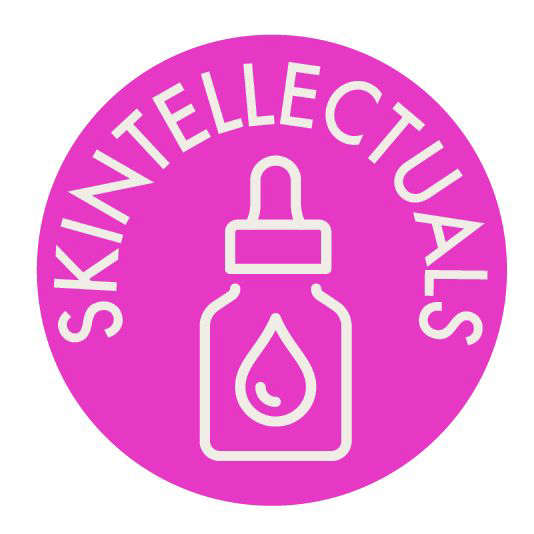Microdosing Is The Latest Trend Skincare Experts Swear By
![]()
![]()
![]()
![]()
![]()
![]()
![]()
![]()
![]()
![]()
![]()
![]()
![]()
Microdosing Is The Latest Trend Skincare Experts Swear By
Skintellectuals - ELLE's panel of pros pass judgement on the latest skincare trends, techniques and ingredients.
There’s no denying that active ingredients such as retinol and acids can do wonders for the skin, but often with these change-making formulas, it’s easy to overdose. It could be tempting to reach for the highest concentrations, multiple nights a week, but could a more measured, ‘drip-fed’ approach be more beneficial?
Before you ask, no, skincare microdosing is not psychedelics in your moisturiser. Instead, it means adopting a more precise, measured approach to ingredients and formulas that have a tendency to cause sensitivity or other adverse reactions. This could be via low percentage serums, exacted application or pre-dosed products, delivered in capsules, ampoules, sachets, or even melting balls (yes, really). But does it actually work?
'Microdosing skincare is the theory that by introducing fewer actives, in smaller doses to your routine, there's likely to be less irritation. It's essentially the market swinging the other way after everyone overdid it with acids/actives during the pandemic and disrupted their skin barrier (often giving themselves perioral dermatitis in the process).
'This is always the approach that should be taken and is the guidance I give to all patients. When introducing any actives, it's much better to start slow, both in terms of strength and usage. What's key is ensuring that you are using the right active/strength for your particular skin concern. The main ones to be cautious with would be Vitamin A (i.e. retinoids, both OTC and prescription) and the stronger acids (think salicylic, glycolic etc).
'There is definitely a case of FOMO amongst some patients where they've seen an influencer use far too many actives in one routine or have perhaps taken advice from an online forum, and they overloaded their skin and triggered a skin condition.'
The Verdict
'Microdosing essentially means just using less potent ingredients to not trigger your skin, which is what I'd always advise as a dermatologist anyway. The right active, at the right strength, for the right problem.
'I'd look to this for any active products that you're leaving on the skin, like serums. Wash-off products like cleansers or masks aren't as much of an issue as they're not staying on the skin.'
'Even with a wealth of information at my fingertips, and many years of writing about beauty, I still get nervy about actives in my skincare. How often should I be using them? How soon should I expect results? If I combine retinol and acids will my whole face just fall right off? What I do know - and I am confident in saying this - is that they can and will make a brilliant difference to your skin. Therefore, I'd encourage everyone to incorporate them into their regime. But if you're not feeling up to the task of figuring out how, when, why and where to use them, the concept of microdosing is a great option.
'I also agree with Dr Sturnham that taking the guess work out of application leads to more consistency, which leads to better results. Kits of weekly ampoules are great because they often lead your skin on a "journey", harnessing actives on the first few days then loading on barrier building goodness during the second half. I've seen amazing results with some of them, they're especially good before a big event when you want a glow boost.'
The Verdict
'When it comes to extreme acids and peels, I like to leave them to the experts - facialists, dermatologists. Preferably when I'm tucked into a treatment bed getting a shoulder massage while the active mask is doing its work. I definitely believe less is more most of the time.
'Starting small, or with pre-measured doses, is a great way to go and made so easy now by brands offering to take the guess work out of things. You can always work up to something stronger, if your skin seems to like it.'
'There are always "new trends" but the concept of microdosing is not a new one and has been used for decades in the world of medicine and pharmacology. I've spent the past 17 years looking after people’s skin and I always take the time to get to know their skincare routines. Interestingly, I have seen some common trends over the years and up to 90% of the skin issues I see are self-inflicted, with the choice of skincare being one of the biggest issues. Using the wrong skincare, particularly harsh products with high doses of active ingredients are particularly problematic.
'People find choosing the right skincare overwhelming and confusing, so I welcome brands that dose their products and make things simpler for people to use. The best are those that are dosed and deliver the exact amount of "active" ingredients that your skin needs, morning and night.
'Retinoids are a good example of ingredients that people find baffling to use and often "overdo". The typical advice is to use a retinoid carefully, at a lower percentage and often only a few days a week and build it up. I used to practice this way 10 years ago. People missed doses, stopped the products due to side effects and didn’t get the Vitamin A benefits that they needed. I found that using a lower strength every day produced better short term and long term results.
'I designed the Weekly Decree, for example, to take away the confusion around exfoliation. This is a transformative weekly treatment consisting of a two step microdosed protocol. Each step comes with dosed pods that give you the exact amount of product you need for your face and neck and a maximum dose of 10% of active fruit acids.'
The Verdict
'Instead of overloading skin with the highest concentration of active ingredient possible, using a lower percentage and applying it daily produces much better long term results, is tolerated better and keeps the epidermal barrier ( the protective top skin layer) healthy.
'My philosophy is that consistency with your skincare is key to having great skin.'
Reference: Elle: Jennifer George
Articles-Latest
- Skin tags: Why they develop, and how to remove them
- So That’s Why Your Skin Gets Crepey As You Get Older
- Eye Infection from False Eyelashes
- Teeth stain removal and whitening solutions
- Benefits of collagen for skin
- Why vitamin E should be part of your skincare regime
- Can gray hair be reversed?
- Hair loss affects 1 in 10 women before the menopause – here’s how to treat it
- Conscious ageing and Black skin: What happens when Black does crack?
- Your skin color may affect how well a medication works for you — but the research is way behind
- The C word Cancer
- Astringents
- How does light therapy work? The science behind the popular skincare treatment
- The Most Offensive Fashion Police Criticisms of All Time
- Everything you need to know about lip filler migration, as told by the experts
- Pig semen and menstrual blood – how our ancestors perfected the art of seduction
- Everything you need to know about benzoyl peroxide
- We've bleached, relaxed, and damaged our hair to make ourselves look more white
- Will this be the year that facial filler is cancelled?
- Shock of the old: 10 painful and poisonous beauty treatments
Cosmetic ingredients
LOGIN
Who's On Line
We have 61 guests and no members online
Articles-Most Read
- Home
- White Bees Wax
- Leucidal
- Cosmetic Preservatives A-Z
- Caprylyl Glycol
- Cosmetics Unmasked - How Safe Are Colorants?
- Cosmetics Unmasked - Choosing Ingredients
- Cosmetics Unmasked - Colorants And Fragrances
- EcoSilk
- Toxic Beauty - Who's Looking At Cosmetics?
- Cosmetics Unmasked - Fragrances
- Microbes and Cosmetics
- Chemicals Lingering In The Environment
- Microbes and Safety Standards
- Yellow Bees Wax
- Potassium Sorbate
- Toxic Beauty - Hazardous To Your Health
- What's Happening in the USA - Cosmetic Regulations - Toxic Beauty
- Synthetics In Cosmetics - The Industry Fights Back
- Fresh Goat's Milk Soap
- Active Ingredients
- Cosmetics Unmasked - Listing Cosmetics
- Toxic Beauty - Cocktails and Low Doses
- Natural Waxes A-Z
- Natural Butters A-Z




